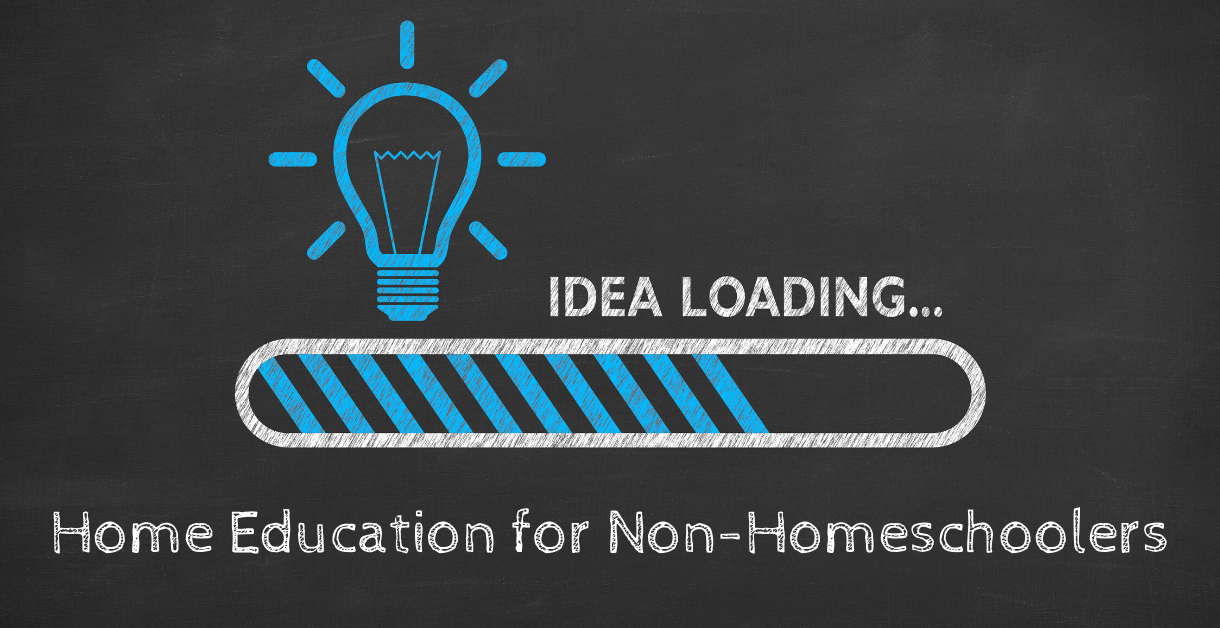Sometimes circumstances happen when traditional schooling outside the home has to be put on hold. Whether it be due to a prolonged illness or injury, a natural disaster, an unforeseen forced closure of the school or other situation where attending public or private school is not an immediate option, it does not mean that your child's education also has to shut down. While the situation may be temporary, you may still have concerns that an extended absence from school will be detrimental to your child's continued progress in their learning. Many schools do provide support and resources for extended closures to help facilitate your child's continued education, however in some circumstances that is not the case and you would like a plan of action.
The thought of educating your child at home, even for those who school at home on an ongoing daily basis, can be intimidating even in the best of circumstances. But there are options available that can provide some of the needed tools to face the challenge with confidence. In addition to your local school support networks, curriculum options and resources successfully and regularly used by families can help you to meet your students education needs.
In order to select the correct options to fit your particular circumstance, you will need to self-evaluate the situation and determine your desired objectives. Some questions you may want to consider are:
Is my student currently on target for the year based on the school criteria?
Am I trying to maintain a specific knowledge-base that my child has achieved, or could my student use this time to focus on a specific course of study that may need additional attention?
Can my child work independently or do they need a little more direct guidance?
Is internet access readily available or unreliable?
What are my budget options for curriculum and supplement purchases?
Evaluating the answers to these questions can help point you in the right direction for finding appropriate educational programs to meet your needs. You will want to be sure to include practice and/or remediation for the major subject areas of math, language arts, science and history to ensure that skills that have been previously establish do not become rusty as they sometimes do from an extended leave. This time away can also be spent pursuing your child's passion for art, music, technology skills and other fun elective-type courses.
Another important thing that is extremely helpful in selecting programs for your student is to determine what type of learner your child is. Does your student like to learn by doing? Do they prefer to use their hands to explore the world around them? Hand-on learning activities can include experimentation, building things, applying principles in an active manner.
Or perhaps you have a child who enjoys reading and absorbs information quickly in this way. Books, video presentations, the internet all work well for the visual learner.
Auditory learners are great listeners and pick up knowledge best when it is explained verbally to them. Audio books, videoed lectures, music and discussing topics are a few ways that an auditory learner learns.
You can learn more about learning dispositions and styles HERE.
Selecting the appropriate curriculum or supplement to meet your student's learning style and needs is really the most difficult task in educating your child from home. Because no one probably knows your child better than you, it will only take a short time to determine what programs are suited for your child.
The Homeschool Buyers Co-op provides an amazing curriculum selection that won't break the bank and valuable support for helping you keep your student on track while away from their regular school.
Taking steps to be prepared in the event that your child will not be able to attend their regular classes ensures that they will continue to thrive and their education will be enhanced, encouraged and energized through your efforts.


